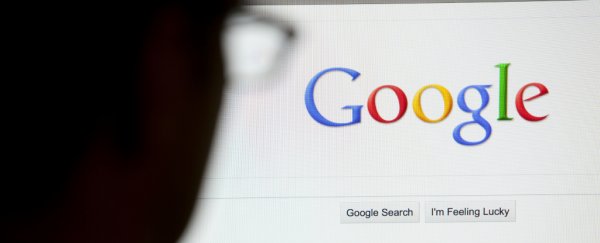In a stark reminder that the internet isn't forever, artist Dennis Cooper has reported that Google has deleted his entire blog without warning - completely erasing 14 years of work in the process.
His blog was hosted by the Google-owned platform Blogger, and other than being shown a violation of terms of service statement, Google has offered no explanation for the erasure.
Worst of all, most of his work was only on his blog, with no other backups that Cooper knows of, which is pretty much every artist's worst nightmare.
Cooper's Gmail account was also disabled without warning, he reported on his Facebook page:
If you visit his Blogger site, it currently displays a standard removal message:
"Sorry, the blog at denniscooper-theweaklings.blogspot.com has been removed. This address is not available for new blogs."
In addition to artwork, photos, and writing, the blog also contained the only copy of Cooper's latest GIF novel (which, as the name suggests, is a novel constructed entirely of animated GIFs.
"Of all the things about this that concern and worry me, losing that novel is my greatest fear," Cooper told Artforum.
The case has since gone viral, with publications questioning whether Google was censoring Cooper's artwork (which came with an 18+ disclaimer, according to their terms and conditions), and also whether this is a breach of their professional responsibility.
Cooper told Ethan Chiel from Fusion that he's now considering suing Google, and PEN America - an organisation that protects freedom of speech in the US and worldwide - is now pressuring Google on Cooper's behalf to explain why it disabled the blog.
"Blogs and social media accounts serve as crucial outlets for creative and artistic expression for millions of people around the world, as well as venues for open discussion among interested visitors," said Suzanne Nossel, executive director of PEN America.
"Disabling Dennis Cooper's blog with no explanation and no assurance that his years of work have been preserved undercuts the trust that users place in online platforms that host their work and ideas. PEN has joined Cooper's calls for a prompt response from Google."
"[If Google doesn't] respond and rectify the situation, I won't have any choice but to sue them," Cooper told Chiel. "I don't want to do that for obvious reasons, but I will if I have to."
But the news has also made people question whether or not Google can be trusted to protect the world's information in the long-term. According to the company, its mission is to "organise the world's information and make it universally accessible and useful".
But it says nothing about maintaining a record of the past - and in recent years it's quietly abandoned storage projects such as the Google News Archive and Google Groups, suggesting that preserving history isn't part of its ongoing business model
So while many of us are battling with the 'right to be forgotten', it turns out that the 'right to be remembered' is just as uncertain - and that's a problem for many of us who rely on online services such as Google Drive and Gmail to be our archives.
"It's a trend that suggests a conclusion that's at once obvious and sad: if the internet is your archive, your archive isn't safe," writes Chiel.
So if you haven't backed up your work yet… take this as a sign to do it right now. You'll thanks us later.
